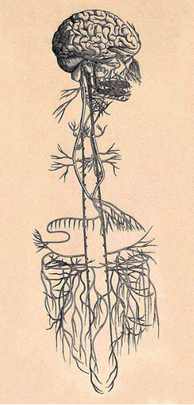 What is your inner child telling you? Do you want everyone to cater to your needs? Do you find yourself disappointed a lot? Do you have a lot of fear... anxiety? The idea of having an inner child may be foreign to most people. But all of us have a part of us that's still us as a child. It's possible that our inner child never fully grew up or may not be fully healed from pain in the past. Think about your current life and all the emotions and behaviors that you don't like and are continually trying to change. These emotions and behaviors come from our experiences from when we were small children. From birth to about 6 or 7 years old, our brain functions at a relatively slow pace, which is a very "receptive" brainwave state. At this time we are profoundly affected by our life experiences. Our beliefs about ourselves and others are formed during this time based on our life's experiences. As small children we will have been absorbing a great deal from our extended families, our caregiver(s), friends, religious institutions, etc. Our experiences may have been filled with love and support or they may have been filled with neglect and abuse. Our subconscious takes in all this information and holds on to it for the rest of our lives. We cannot change the script. The life we experienced happened, whether good or bad, it happened. And that script, how our brain processes our events, is designed to keep us safe. Hence, anxiety to keep us on the lookout for danger (as an example). All of our life experiences have been "logged" into our sub-conscious minds and bodies. This all creates the pool in which we float, or sink. Inevitably, the water will be a bit dirty - or it may even be like thick mud. In this pool is our self-esteem, body-image, family trauma, shame and secrets (even if not spoken about). We sink down into this pool, or mud, whenever we are overwhelmed by our negative thoughts, emotions, self-doubt or self-loathing. In therapy the aim is to sensitively lift out this dirt/mud, bit by bit, until we are left with just a stain of what was once there. In therapy you can learn how to meet, rescue and “adopt” this wounded child who still lives deep inside you. This process of meeting, rescuing and adopting your wounded child is an amazing process. Any why you? Because you are the only person who you can guarantee never to leave you! Signs that your Inner Child may be wounded: low self-esteem, poor body-image, mood and emotional imbalances, problems with boundaries being too rigid or too weak, problems with eating, harming yourself, being a rebel/ a hoarder/ a bully/ a perennial victim or a super-achiever, intimacy problems, commitment problems, a general lack of trust in yourself and others, criminal behavior, excessive lying, just to name a few. If you are in Orange County, California and interested in working on your Inner Child please feel free to reach out to me. We can begin with a free 15-minute consultation and go from there. Or you can reach out to any therapist in your area and ask if they do Inner Child work. I wish you all the best! I am a licensed Marriage & Family Therapist who can provide services with anyone who resides in the State of California. I have also been trained in Clinical Hypnotherapy which is beneficial for more specific goals.
Liz Birch, LMFT, CHt ~ 714-584-6047 ~ [email protected]
0 Comments
 Let me begin by saying Hypnotherapy is not a type of therapy in itself. However, it is a great aid to Cognitive Behavioral Therapy. Cognitive Behavioral Hypnotherapy, which combines hypnosis with cognitive-behavioral therapy, helps change unwanted patterns and behaviors by connecting with the subconscious mind. It helps with psychotherapy because the hypnotic state allows a person to explore more painful thoughts and feelings that may be hidden from the conscious mind. The positive suggestions that people are given while hypnotized are referred to as “post hypnotic suggestions” because they are intended to take effect after the person emerges from the deep relaxation or trance and is no longer under hypnosis. Experts say that hypnotherapy can help the "stuck" thought patterns that go along with depression, anxiety, OCD, and other mood disorders. The fact is, however, that hypnosis is a genuine psychological phenomenon that has valid uses in clinical practice. Simply put, hypnosis is a state of highly focused attention or concentration, often associated with relaxation, and heightened suggestibility. While under hypnosis, it seems many people are much more open to helpful suggestions than they usually are. "Hypnosis works and the empirical support is unequivocal in that regard. It really does help people," says Michael Yapko, PhD, a psychologist and fellow of the American Society of Clinical Hypnosis. Hypnosis has been used for centuries for pain control, including during the Civil War when Army surgeons hypnotized injured soldiers before amputations. Recent studies have confirmed its effectiveness as a tool to reduce pain. Among the leading researchers in the field is Guy H. Montgomery, PhD, a psychologist who has conducted extensive research on hypnosis and pain management at Mount Sinai School of Medicine, where he is director of the Integrative Behavioral Medicine Program. In a 2009 article in Health Psychology (Vol. 28, No. 3), Montgomery and colleagues reported on a study, which found that a combination of hypnosis and cognitive-behavioral therapy could reduce fatigue for breast cancer patients undergoing radiation therapy. Hypnotherapy is a safe procedure when done by a trained therapist. Hypnotherapy is not mind control or brainwashing. Hypnotherapy is specifically designed to fit your needs. This means that each hypnotherapy session is designed for just you and allows for a very individualized approach. The reason that hypnotherapy can be so effective is because it is so person centered. If you have tried other treatments and not seen results, you should give hypnotherapy a try due to the fact that it is so person centered. Check with your insurance company to see if they specifically cover hypnotherapy.
 The Vagus Nerve is the longest cranial nerve in your body. Vagus means “wanderer” in Latin, which accurately represents how the nerve wanders all over the body and reaches various organs. The Vagus Nerve is also a key part of your parasympathetic “rest and digest” nervous system. It influences your breathing, digestive function and heart rate, all of which can have a significant impact on your mental health. It’s important to increase the “tone” of your vagus nerve, as having a higher vagal tone means that your body can relax faster after stress. In 2010, researchers discovered a positive feedback loop between high vagal tone, positive emotions, and good physical health. So the more you increase your vagal tone, the more your physical and mental health will improve. Studies have shown that vagal tone is passed on from mother to child. Mother’s who are depressed, anxious and angry during their pregnancy have lower vagal activity. Once they give birth, the newborn also has low vagal activity and low dopamine and serotonin levels. Don’t worry if you think you might have a low vagal tone! You can take steps to increase it by stimulating your vagus nerve. This will allow you to more effectively respond to the emotional and physiological symptoms of your brain and mental illness. By stimulating your vagus nerve you can help treat mental health conditions such as depression and anxiety. So how does one stimulate their vagus nerve? Look at the list below! 1. Cold Exposure Researchers have found that exposing yourself to cold on a regular basis can lower your sympathetic “flight or fight” response and increase parasympathetic activity through the vagus nerve. Try finishing your next shower with at least 30 seconds of cold water and see how you feel. Slowly work your way up to longer periods of that cold-water blast. The lingering effects are worth it! 2. Deep and Slow Breathing Most people take about 10 to 14 breaths each minute. Taking about 6 breaths over the course of a minute is a great way to reduce stress. You should breath in deeply from your diaphragm. When you do this, your stomach should expand outward. Your exhale should be long and slow. This is the key to stimulating the vagus nerve and reaching a state of relaxation. 3. Singing, Humming, Chanting and Gargling The vagus nerve is connected to your vocal cords and the muscles at the back of your throat. Singing, humming, chanting and gargling can activate these muscles and stimulate your vagus nerve. This has been shown to increase heart-rate variability and vagal tone. 4. Meditation Research shows that meditation increases vagal tone and positive emotions and promotes feelings of goodwill towards you. Another study found that meditation reduces sympathetic “flight or fight” activity and increases vagal modulation. “OM” chanting, which is often done during meditation, has also been shown to stimulate the vagus nerve. 5. Exercise Not only does exercise help reverse cognitive decline but it’s also been shown to stimulate the vagus nerve, which may explain its beneficial brain and mental health effects. Walking, weighlifting and sprinting are the best forms of exercise but you should do what you enjoy so that you will maintain it consistently. 6. Socializing and Laughing Reflecting on positive social connections improves vagal tone and increases positive emotions. Laughter has been shown to increase heart rate variability and increase mood. And vagus nerve stimulation often leads to laughter as a side effect, suggesting their connection. So laugh with your friends as much as possible! Conclusion By stimulating the vagus nerve, you can send a message to your body that it’s time to relax and de-stress, which leads to long-term improvements in mood, wellbeing and resilience. So give some of the above suggestions a try and see if you can overcome some of the depression and anxiety that arise. http://pss.sagepub.com/content/early/2013/05/06/0956797612470827.abstract www.ncbi.nlm.nih.gov/pubmed/22894892 I am a licensed Marriage & Family Therapist who can provide services with anyone who resides in the State of California. I have also been trained in Clinical Hypnotherapy which is beneficial for more specific goals. Liz Birch, LMFT, CHt ~ 714-584-6047 ~ [email protected] |
|

 RSS Feed
RSS Feed